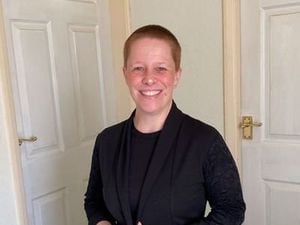Paid leave for abuse victims is good start
Sam Billingham discusses New Zealand's legislation granting victims of domestic abuse 10 days paid leave for today's Talking Point column.

I recently saw in the news that New Zealand has just passed a law granting victims of domestic abuse 10 days paid leave.
I would have certainly welcomed this 12 years ago when I lost my job as a Legal Secretary because I was experiencing domestic abuse behind closed doors.
My boss at the time just didn’t want to listen and my pleas fell on deaf ears.
Paid leave for victims of domestic abuse is a good idea, it won’t solve the problem but it is a way forward and one that could benefit those trying to flee.
I assume to make this work that employers are aware of early warning signs, they have a domestic abuse champion and posters are placed in the workplace to give the courage to people to speak out about what is happening to them.
My concern is, how will the survivor have to ‘prove’ that they are experiencing domestic abuse at home?
What about those who are experiencing psychological abuse, sexual abuse or financial abuse? What criteria do they have to fit before they are eligible for the 10-day leave to take place?
I do think that the strength of conversation where domestic abuse is concerned has got stronger but not the understanding of it. With strong support a survivor could leave safely.
With 10 days paid leave and strong support, a survivor could leave the relationship safely, have a safety plan put in place, open their own bank account, register with a new school or change their mobile number.
However, I feel we still have to be realistic here and say, ‘yes, this is a positive way forward’, although we have to ask, ‘is it strong enough on its own’?
There are still huge gaps that need filling and this isn’t a complete solution to the epidemic that affects one in four women and one in six men at some point during their lifetime.
Encouraging survivors to leave their abusive relationship is positive but it’s the ongoing after-care and support that is really failing them and completely letting them down. This is one reason they all too often go back to the arms of their abuser.
For this to be successful, stronger support needs to go hand in hand with this suggestion. As positive as it sounds this is when protection for the vulnerable victim is vital because the complex cycle won’t simply stop.
Abusers will do all they can to gain and maintain power and control over their partner, including taking away their independence and financial independence too. At the beginning of an abusive relationship, isolation all too often takes the survivor away from their support network and their career.
For Britain to follow New Zealand’s suit would be uplifting to many.
We are moving forward where domestic abuse is concerned – but we still have such a long way to go. Yet this could most definitely be a great stepping stone.
Sam Billingham is a campaigner and runs Survivors of Domestic Abuse (SODA).





